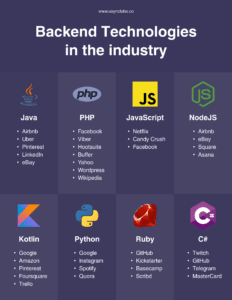Technology plays a crucial role in modern society, driving innovation, efficiency, and connectivity. It has revolutionized communication, healthcare, education, and business, transforming the way people live and work.
In today’s interconnected world, technology enables instant access to information and resources, breaking down geographical barriers and fostering collaboration on a global scale. From smartphones and social media to advanced medical treatments and sustainable energy solutions, technology has become an integral part of everyday life.
Rapid advancements in artificial intelligence, robotics, and automation are reshaping industries and creating new opportunities for growth and development. However, the growing reliance on technology also raises concerns about privacy, cybersecurity, and the ethical implications of its widespread use. As society continues to embrace digital innovation, the role of technology in shaping the future is more prominent than ever before.

Enhancing Communication
Communication in the modern world has been revolutionized by technology, empowering individuals and societies alike.
Instantaneous Communication
Instantaneous communication allows people to connect instantly across vast distances for personal and business purposes.
Global Connectivity
Global connectivity through technology bridges cultures and continents, fostering understanding and collaboration.

Increasing Productivity
Increasing Productivity
Automation and Efficiency
Technology plays a pivotal role in automating tasks and enhancing efficiency in modern society.
Streamlined Workflows
Modern technology enables the creation of streamlined workflows, optimizing processes for maximum productivity.
Transforming Industries
Technology has not only revolutionized individual lives but also has had a profound impact on various industries. From the way we communicate to how we conduct business, technology has played a crucial role in transforming industries in unprecedented ways.
Disruption And Innovation
In the fast-paced digital era, disruption and innovation have become the norm in many industries. Technological advancements have allowed new players to enter markets and challenge traditional systems, often leading to the downfall of established companies that failed to adapt.
With the advent of smartphones and powerful mobile applications, the taxi industry witnessed a massive disruption. Traditional taxi companies were forced to rethink their business models as ridesharing platforms like Uber and Lyft gained popularity.
Additionally, the rise of e-commerce has revolutionized the retail industry. Brick-and-mortar stores are no longer the sole option for consumers, as online shopping platforms provide convenience and an extensive range of products. This shift in consumer behavior has forced retailers to invest heavily in their online presence and enhance their delivery services to remain competitive.
Moreover, sectors such as healthcare and finance have experienced significant advancements due to technology. The introduction of telemedicine has made healthcare more accessible, while online banking and mobile payment systems have revolutionized the way we handle our finances.
Changing Business Models
Technology has not only disrupted industries but also forced businesses to rethink their traditional models. The interconnectedness of our modern society and the availability of vast amounts of information have paved the way for new business approaches and opportunities.
One notable example is the sharing economy, which has gained traction in recent years. Platforms like Airbnb and We Work have transformed the hospitality and real estate industries by allowing individuals to monetize their underutilized assets. This shift in business model has enabled people to become entrepreneurs and generate income by sharing their homes or workspaces.
The rise of cloud computing has also revolutionized the IT industry. Instead of investing in expensive hardware and software, businesses can now rely on cloud services to store data, host websites, and perform various operations. This shift not only reduces costs but also provides scalability and flexibility, allowing businesses to adapt to fluctuating demands more efficiently.
In conclusion, technology has played a significant role in transforming industries, leading to disruption, innovation, and the emergence of new business models. As technology continues to advance, it is essential for businesses and industries to embrace change, adapt, and find innovative ways to thrive in the digital age.

Enabling Remote Work
In the modern era, technology plays a pivotal role in enabling remote work, transforming the traditional work culture. Through the utilization of various digital tools, individuals can work from anywhere, providing newfound flexibility and opportunities for collaboration.
Flexibility and Work-life Balance
Remote work enabled by technology permits individuals to create their own schedules and work from their preferred locations, thus promoting a healthier work-life balance. This flexibility has proven invaluable in allowing individuals to manage their personal responsibilities alongside their professional commitments, contributing to a greater sense of overall well-being.
Collaboration and Teamwork
Technology facilitates seamless collaboration and teamwork among remote workers through various tools such as video conferencing, collaborative documents, and project management platforms. This enables team members to engage in real-time communication and efficiently collaborate on projects, regardless of their physical location.

Improving Access To Information
Improve Access to Information
Online Education
Online education, also known as e-learning, enables individuals to access learning materials and courses from anywhere with an internet connection. This breakthrough has made education more accessible, allowing people to acquire new knowledge and skills without the constraints of traditional classroom settings.
Information Sharing and Research
Technology facilitates the seamless sharing of information and research findings across geographical boundaries. It has revolutionized the way researchers collaborate, exchange data, and disseminate their studies. This enhanced accessibility to information fosters innovation and accelerates the pace of discovery in various fields.
Impacting Healthcare
Technology has had a profound impact on healthcare in modern society, revolutionizing patient care and improving medical outcomes. From electronic health records to telemedicine and wearable devices, technology has enhanced patient monitoring, diagnosis, and treatment. These advancements have made healthcare more accessible and efficient, ultimately leading to better health outcomes for individuals.
In modern society, technology has become an integral part of our lives, and its impact on the healthcare industry is undeniable. Advances in technology have revolutionized the way healthcare services are delivered and accessed, leading to improved patient outcomes and access to care. Two key areas where technology is making a significant impact in healthcare are telemedicine and health monitoring with data analysis.
Telemedicine
Telemedicine is a breakthrough in healthcare that enables patients to receive medical consultations remotely using digital technologies. It allows individuals to consult with healthcare professionals via video calls, audio calls, or even text messaging. This has opened up a world of possibilities, especially for individuals in remote areas with limited access to healthcare facilities. Telemedicine has eliminated geographical barriers, allowing patients to receive timely medical advice regardless of their location. It also reduces the need for unnecessary visits to the emergency room or urgent care for non-emergency situations, saving both time and money.
Health Monitoring and Data Analysis
Technology has also enabled the development of innovative devices and applications that enable individuals to monitor their health proactively. These devices, such as fitness trackers and smartwatches, can track vital signs, activity levels, sleep patterns, and even perform electrocardiograms. The data collected by these devices can be analyzed to provide valuable insights into an individual’s health status and help detect potential health issues before they become serious. Healthcare providers can also leverage this data for population health management, identifying trends and patterns to optimize care delivery.
| Benefits of Health Monitoring and Data Analysis: |
|---|
|
In conclusion, technology plays a crucial role in transforming healthcare by enhancing access to medical services and empowering individuals to take charge of their health. Telemedicine enables remote consultations, breaking down geographical barriers, and saving time and resources. Health monitoring and data analysis devices provide valuable insights, leading to early detection of health issues and personalized care recommendations. As technology continues to evolve, we can expect even more significant advancements in the healthcare industry.

Shaping Entertainment And Media
Technology plays a crucial role in shaping entertainment and media in modern society. From digital streaming to social media, it has revolutionized how we consume and interact with content.
Digital Streaming and Content Creation
Digital streaming services like Netflix and Spotify have transformed the way we access movies, music, and other forms of entertainment. They offer on-demand content that can be enjoyed anytime, anywhere.
Social Media and Influencer Culture
Social media platforms such as Instagram and YouTube have given rise to influencer culture, where individuals can build massive followings and shape trends and beliefs. Influencers have become key players in the entertainment industry.
Addressing Environmental Challenges
Technology plays a crucial role in addressing environmental challenges in modern society.
Renewable Energy Solutions
Renewable energy solutions harness natural resources like sunlight, wind, and water
to generate clean electricity.
Sustainable Practices and Monitoring
Sustainable practices focus on minimizing resource consumption and reducing waste through
efficient monitoring and management.
Frequently Asked Questions For What Is The Role Of Technology In Modern Society?
What Are The Key Roles Of Technology In Modern Society?
Technology facilitates communication, enhances productivity, and drives innovation in various industries.
How Does Technology Impact Modern Society’s Daily Lives?
Technology simplifies tasks, enables access to information, and revolutionizes entertainment and social interactions.
What Challenges Does Technology Present To Modern Society?
Technology poses risks such as data privacy concerns, job displacement, and overdependence on digital platforms.
Conclusion
It is undeniable that technology plays a crucial role in shaping modern society by revolutionizing various aspects of our lives. From communication to healthcare, education, and even entertainment, technology has transformed the way we interact, learn, and experience the world.
As we continue to evolve and embrace advancements, it is important to strike a balance between the benefits and potential drawbacks of technology, ensuring that it serves as a tool for progress rather than a barrier to human connection and well-being.
By understanding its role and leveraging it wisely, we can harness the power of technology to create a brighter and more inclusive future for all.









2 thoughts on “What is the Role of Technology in Modern Society?”